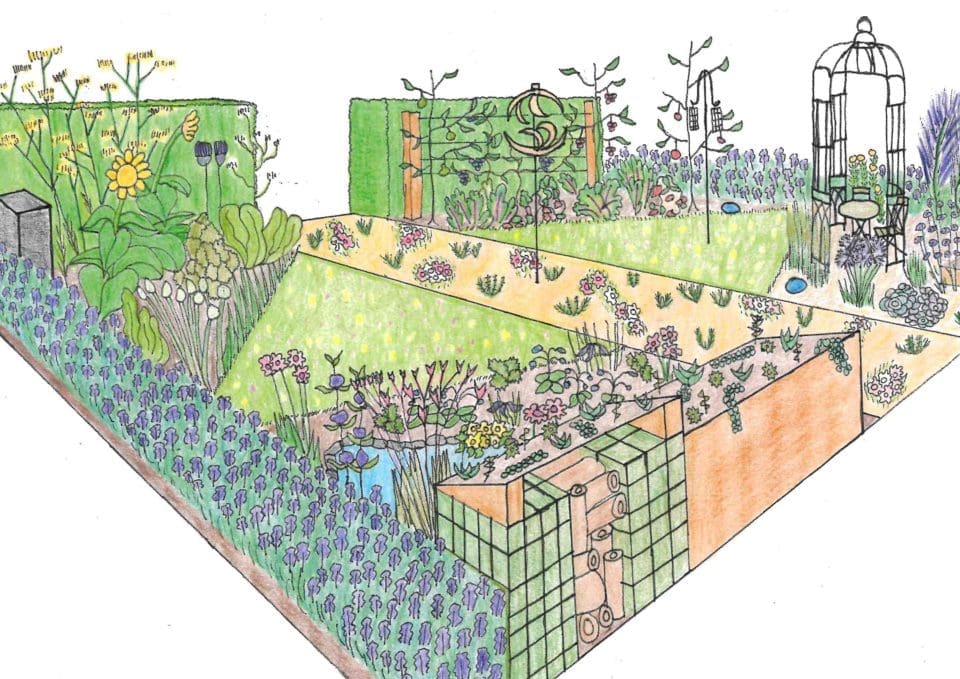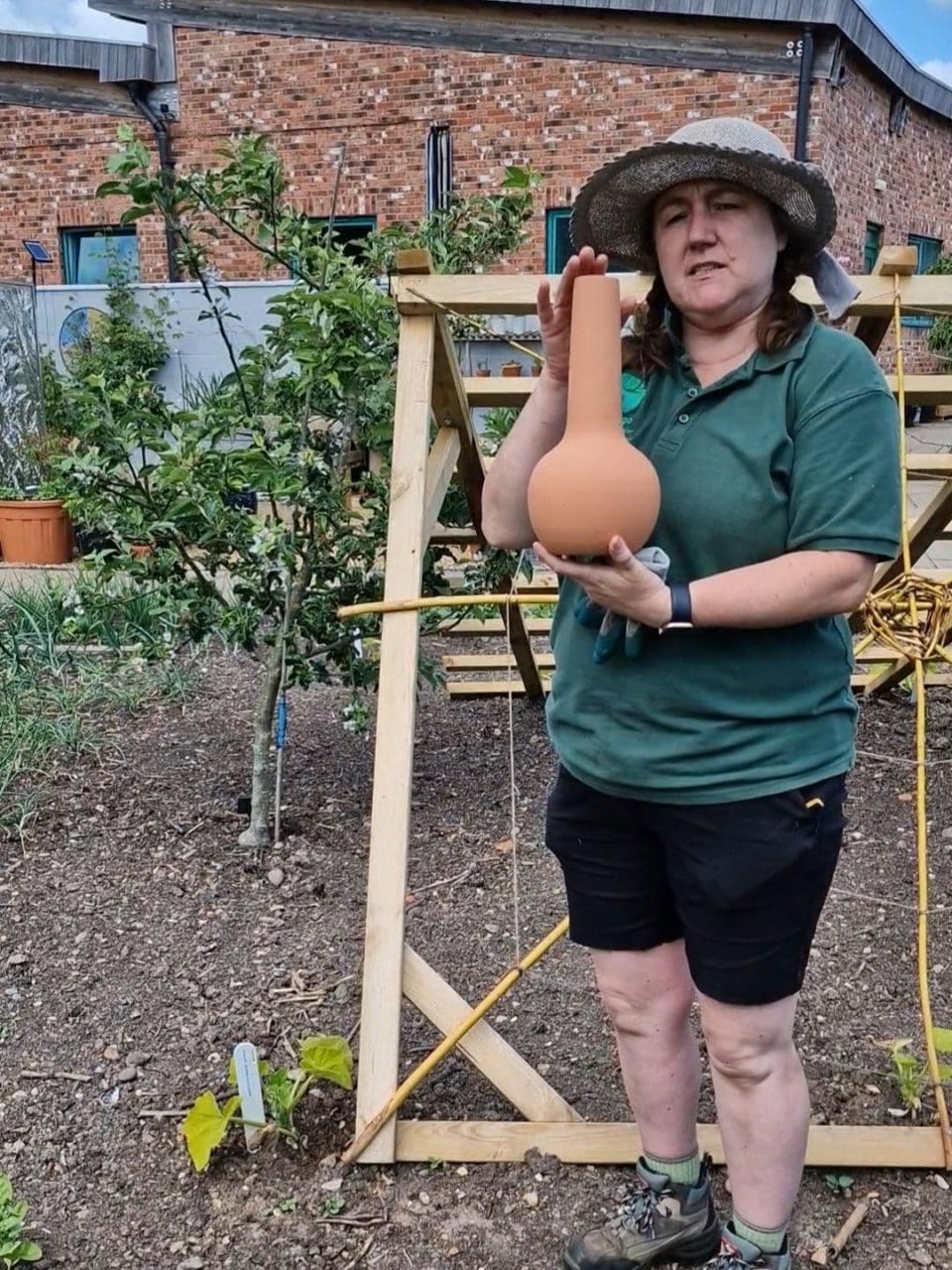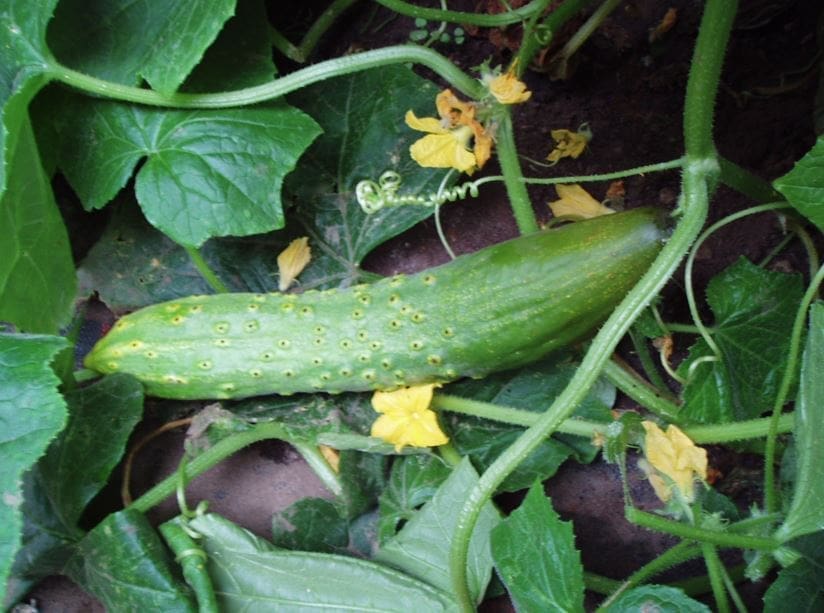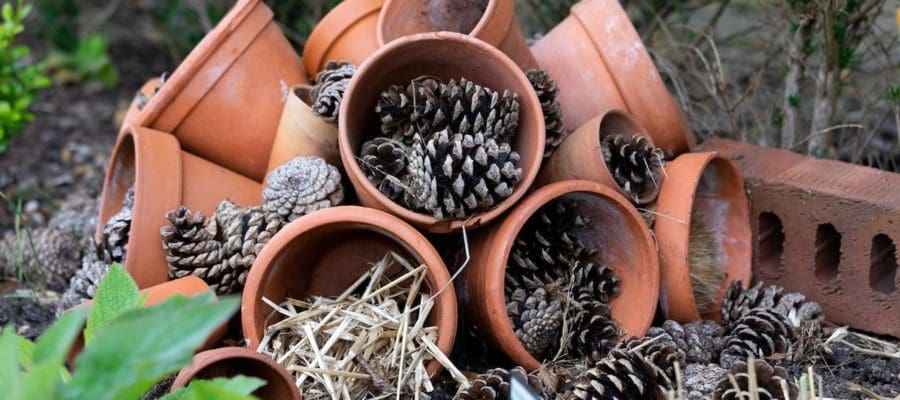Bugs, birds and beneficial plants are the central themes in a new Garden Organic Backyard Biodiversity show garden, due to be unveiled at BBC Gardeners’ World Live from 15th to 18th June at the NEC, Birmingham.
The organic gardening charity’s head gardener Emma O’Neill has designed a new biodiverse show garden for 2023, which brings together biodiversity-boosting elements and ideas to help gardeners welcome more wildlife into their back gardens.

The 6mx6m garden includes sensational sustainable zones to maximise wildlife and mitigate climate change, such as:
• Water-saving solutions
Dividing the show garden down the middle is a permeable pathway with gravel between honeycomb paving. Planted up with herbs, it allows rainwater to drain slowly and naturally while providing habitats. A dry, gravel garden is planted with drought-tolerant plants such silver-leaved perennials and grasses. And even the water butt has a planter on top to maximise growing space and act as a sponge. The Back Garden Biodiversity design also incorporates terracotta Olla pots which are sunk into the ground near thirsty plants. The porous texture allows water to slowly seep through the clay providing a slow-release water source to the plant roots over a long period.

Emma O’ Neill, Head Gardener, with Olla pot
• Nurturing nature
The idea of a ‘weed’ is reimagined with a pond surrounded by beneficial plants such as dead nettles and dandelions. Nearby a short flower lawn is bursting with red clover and trefoil, which shows how conventional lawns can be injected with colour and scent to encourage insects. Plus, there’s a low lavender hedge and British native hedge, alongside bug hotels and log piles, to provide plenty of shelter.
• Sustainable planting
A perennial vegetable bed demonstrates how these low maintenance, long-lasting plants allow gardeners to buy less in and extend the harvest. Plants include tasty tubers such as skirret, yacon and oca. There’s globe and Jerusalem artichokes, and Egyptian walking onions, with their tiny clusters of bulbils that regrow each year. Fruit bushes such as blackcurrant, gooseberry and raspberry provide rich-picking for puddings – and for birds!
• Hot composting
The garden will also include a Hotbin which super-heats garden and kitchen waste to around 60 degrees – including meat and dairy – to produce useable compost in just a couple of months.
• Varieties from the Heritage Seed Library
Displayed within the garden will be varieties from the charity’s Heritage Seed Library, as featured on Gardeners World on Friday 2nd June. On display will be just a selection of the 800 varieties conserved by the charity – each one of them a source of precious biodiversity that would have been lost without the efforts of the Heritage Seed Library.

Cucumber ‘King of the Ridge’ Heritage Seed library variety
“We all need to start developing biodiverse, sustainable gardens that can weather climate change – and work with nature and not against it,” says Emma. “We hope our design shows that with small steps and little cost, gardeners can make changes that will encourage more life into their gardens. And the more friends a garden has, the better for biodiversity and the planet.”
Garden Organic’s Backyard Biodiversity Garden is located within the show garden area, GA12. The charity’s experts will be on hand to offer advice and information, and visitors will be able to join as members of Garden Organic and the Heritage Seed Library to support the work of the charity and access the rare seeds featured within the show and the TV programme. More information on the charity’s work can be found at gardenorganic.org.uk
Garden Organic would like to extend their thanks to the following companies who have supported the charity in the creation of the garden: The Organic Gardening Catalogue, Beth Chatto’s Plants and Gardens, EcoSure, HOTBIN Composting, GAP Garden Products, Smith’s Concrete and Waterside Nursery.





